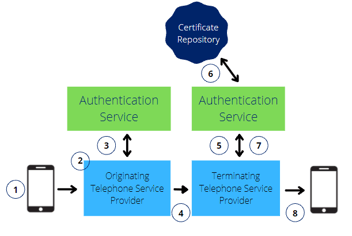5 Quick Tips About Millennial Customers
Millennial customers will soon be the major spending power in the US. Born approximately between 1980 and 2000, they make up the largest generation in the US. More than ever before, this generation is imprinting their moral and ethical beliefs upon the decisions they make regarding purchases, employment opportunities, and professional relationships. Millennials choose to support businesses only when those businesses share their common values. Many have seen the benefit (Toms, Warby Parker, Better World Books, etc.), while many have suffered as a result of their differing practices. Now, companies can be pro-environment or pro-people on paper, but the opposite in action. Millennials don't take long to discover the validity of a company's charitable claims.
Millennials are the most diverse generation the U.S. has ever had, and generalizations must be understood as just that, generalizations. Read with the mindset that this is a general trend and not an open and closed case.
Millennials Care about People & Causes – Not the Bottom Line
During economic collapse in 2008, many millennials watched as their parents' mortgages failed, retirement funds evaporated, and their savings for university dried up. Corporate self-interest stifled the economy and the ripples are still felt today. As a result, Millennials are biased against companies who put the 'bottom line,' or the needs of the shareholders, before the needs of the customer, the environment, and their workers.

Mountain Dwelling, B.I.G. Denmark.
2. Millennials Want A Healthy Planet. Bjarke Ingels is a prime example of an early adopter of this mentality. A groundbreaking architect who is designing the new Redskins Stadium, 2 World Trade Center (the new world trade center), and Google North Bayshore. Bjarke focuses on "Hedonistic Sustainability," this is the belief that high-quality, affordable, and sustainable architecture do not exist as mutually exclusive ideals. The bottom Line, Millennials have seen climate change substantiated by science for their entire lives, and know that there are win/win possibilities for both business and the environment.

3. Millennials Look to the Internet for Information. Millennials have experienced their lives surrounded by a sea of information. They have had access to the Internet for longer periods of their lives than any other generation, and their ability to interact with the world around them through the Internet exceeds any other cohort group. Millennials know that if they see a product they do not like, they can find an almost identical product somewhere else. They know that they have a choice, and can adeptly research exactly what they need. Businesses therefore need excellent unique selling points to capture very specific demographics. Old school print advertising and outbound marketing is no longer as effective as it once was.
 4. Millennials Are Social. No, they are not 'going social.' They integrate their lives into social media and have adopted Internet social channels as far back as dial-up modems. Millennials know that the best referrals for a product or service they are interested in are on social media. Social Media acts in this way as a digital referral - it serves the same purpose as an in-person recommendation for a service or product. Enterprising Millennials create social channels that then promote brands they enjoy, and create ad revenue for themselves as a result. This means that yes, you can make a living on Instagram.
4. Millennials Are Social. No, they are not 'going social.' They integrate their lives into social media and have adopted Internet social channels as far back as dial-up modems. Millennials know that the best referrals for a product or service they are interested in are on social media. Social Media acts in this way as a digital referral - it serves the same purpose as an in-person recommendation for a service or product. Enterprising Millennials create social channels that then promote brands they enjoy, and create ad revenue for themselves as a result. This means that yes, you can make a living on Instagram.
5. Millennials Want Transparent Pricing Millennials will take one look at a price, and expect that price. If there are hidden fees, extra taxes, processing fees, administration fees, or any other pointless fees, they will hit the road and find a better service elsewhere. Millennials research the cost of a product to produce (they Google it), the labor cost of a good or service, and the appropriate profit margins on them. They have college educations and know how basic economics work. They are savvy buyers and are not going to buy-in to obviously predatory pricing strategies.
In conclusion, this is a list of generalizations on the ways in which many millennials determine which goods and services they choose to purchase and support. If you extend these change drivers further, it becomes obvious: Millennials are better advocates for the products they purchase than any marketing strategy or advertisement created by the business itself. If they like what you offer, they will talk about it. To them, an ethical, well-run business that genuinely cares about their people, the environment, and the customer is a rarity and is something to be proud of. So, if you fit that mold, keep doing what you're doing.
About Simplicity
Simplicity VoIP, based in Richmond, VA, provides hosted PBX, VoIP and business telephone solutions nationally to small, medium, and enterprise-level businesses for a comprehensive unified communications experience. Two distinct Class 5 geo-redundant VoIP platforms are offered in addition to fax-to-email, phones and equipment, and managed services. Named as Richmond’s 11th fastest growing company by Richmond BizSense, Simplicity VoIP’s key to success is its on-site service, installation and training supported 24/7/365 by a world-class client services team.





